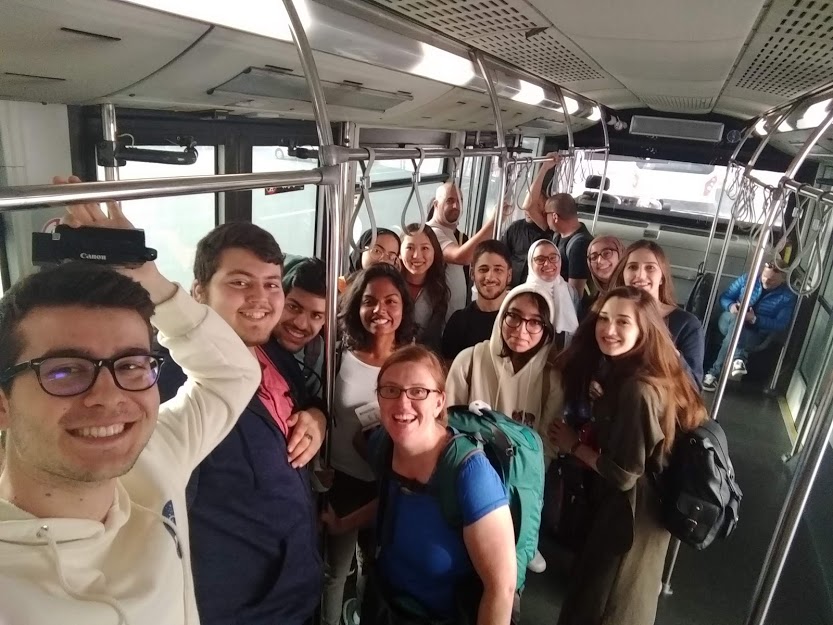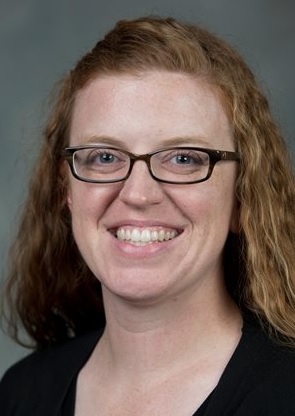Commission for Global Dimensions of Student Development
Monday, 25 November 2019 - 8:46am
By Elizabeth Coder and Brian Gallagher
Elizabeth and Brian are two (of the many) US trained Student Affairs folks working outside the United States. On various Facebook groups, in person at conferences and through networking many people often approach the two of them and inquire, “How can I go work in student affairs outside the U.S.?” This blog post answers that question (and a whole lot more).
In embarking on an international job search in student affairs, there are several things to keep in mind:
- Student affairs abroad looks very different than what we’re used to in the United States. While the number of American-style colleges and universities abroad and the number of international U.S. branch campuses is growing, most of the world doesn’t view this work in the same way as North Americans. Even the name is different! In many parts of the world, student affairs is actually referred to as student services. (Elizabeth has an Irish colleague who gets uncomfortable every time she says student affairs as the word affairs implies something inappropriate might be going on. It’s not. Promise.) Student affairs is also much less ‘hands-on’ in other countries than it is here in the United States. If you ask one of our colleagues who works internationally, they will likely tell you that we coddle students here in the United States. A lot.

Picture: Brian with students in Karachi - You’re limited in where you can go by where you can obtain a work visa. If you’re looking to work internationally, it’s important to understand that you’re limited in where you can work by where you can obtain a work visa. (Some job postings will even tell you right off the bat that you have to legally have the right to work in said country.) In the European Union and in the United Kingdom (Is Brexit still happening?), it’s extremely difficult to get a work visa to work in student affairs as the employer essentially has to prove that there’s no one else in the entire European Union that can do the job. As great and as wonderful as we are, there are also great and wonderful people in the EU that an institution can hire with much less hassle. Australia and New Zealand pose similar challenges in sponsoring permanent work visas. (But we both know folks that worked temp jobs in higher education on a working holiday visa and had a great experience! The only downside is that you have to be under the age of 31.) So we suggest looking off the beaten path. There are lots of wonderful institutions in the Arabian Gulf, China, Southeast Asia, East Africa, and the Caribbean (just to name a few areas that recently had openings!) that would love to have you join them! So keep an open mind! Brian was a finalist for a job in New Zealand until the President of the College finally said “No, we will not sponsor him.” The HR rep told Brian they went with the lesser qualified candidate because there was no visa needed.
Picture: Elizabeth and her colleague, Kevin, exploring the Great Wall of China while working on a recent Semester at Sea voyage. - Student affairs degrees aren’t recognized internationally in the same way they are in the United States and Canada. It is a very North American degree. In fact until fairly recently, the only countries where you could earn a Master’s degree in student affairs (or some variation therein) were the United States and Canada. There is now at least one Master’s program offered in the United Kingdom. (If you know of others, please let us know!) To put this into perspective...A couple of years ago, Elizabeth was speaking with a colleague who is in upper administration at a large university in Australia and asking what job prospects in Oz might look like for someone with her educational background (M.A. in Higher Education) and several years of professional experience in student affairs. The Australian colleague said, “You’d be way over qualified. We don’t require a Master’s in higher education for positions in Australia. How can we require a degree that’s not even available in our country?” The Australian colleague brings up a good point.
- The international job search process looks different. Some universities outside the United States advertise their openings on websites like The Chronicle and Higher Ed Jobs and some don’t. If you have an idea of universities you’d be interested in working at, we recommend bookmarking their human resources websites and checking them periodically. You may also find job postings at international universities on LinkedIn and through the SECUSS-L listserv. In updating your cover letter and your resume, also be cognizant of the language used in the job posting as some of the language we use in the United States doesn’t ‘translate’ (i.e. they’ll have no idea what the heck you’re talking about). The interview process may also be much less intense that we’ve grown accustomed to (Sometimes the search process may only consist of one one-hour Skype interview!) and oftentimes will be done completely via video conferencing as an on-campus interview isn’t feasible. And be mindful of those time zones! While no one wants to do a Skype interview at three o’clock in the morning, sometimes you gotta do what you gotta do.

Picture: Elizabeth with Qatar-based students enroute to a service-learning program in Greece. - Everyone’s path to working internationally in student affairs is different. There are no right or wrong ways to get a foot in the door internationally. A foot in the door is a foot in the door. Some folks we know (okay lots of folks) got their start working short-term contracts with programs like Semester at Sea. Some folks we know got their start working at an international U.S. branch campus. Some folks we know got their start working at a university in a part of the world that a lot of people might not be interested in moving to. And some folks we know got their start by being very intentional about their career choices in the United States so they could then transition into working abroad. There is no right way to go about this.
- A developmental moment and/or final thought. Why are you looking to work overseas? What are you really hoping for? If you are looking to ‘travel all the time and see the world’ - this is not that. Working overseas is hard. Working overseas is often as unrewarding or frustrating as working in the United States. There is racism, sexism, classism - often all of these things much more overt than in the U.S. The big difference (between the U.S. and elsewhere) is the difference in culture - i.e. cultural customs, cultural norms and societal expectations. Often, this means a very different work environment. One is constantly balancing “Am I just saying this because it is what we do in the U.S.? Or am I saying this because it is a good idea given the culture here?”

Picture: Brian with Habib University's first Orientation leader cohort
Sure, there are opportunities to go to cool places… but Cleveland has some great museums and is a quick 90 min drive from Niagara Falls. Nebraska has the famous ‘Car Henge’ to check out. Maine has some beautiful coast and amazing lobster. San Diego has great surfing. Use your vacation time to travel overseas. Join Facebook groups to learn about using credit card points for airfare and research cheap flights and discounted travel. It is entirely possible to fly from the U.S. to Europe for under $300 round trip if you find a halfway decent deal. It is equally possible to get to Asia for less than $500. Once you are in-country in Thailand, you can easily live off of $20-30 per day. This is what vacation time is for.
If you want to be the globe trotter and ‘see the world’ - get out of Student Affairs and set yourself up as digital nomad. Write a blog that makes money, learn to code, design websites, or pick some other field that enables this. Or go a dramatically different direction, volunteer at youth hostels, work on farms (WWOOF), volunteer for the Peace Corps…
Author Bios

Brian Gallagher is a Student Affairs professional who has been serving as the Head of Student Life at Bard College Berlin (BCB) since 2017. BCB is a small liberal arts college related to, but not governed by, Bard College in Annandale, NY. Previously, Brian lived/worked in Karachi, Pakistan and at various institutions in the US.

Elizabeth Coder has worked abroad in Europe, Central America, and most recently the Arabian Gulf. She is currently pursuing her Doctorate in Education in Education, Policy, Organization, and Leadership, concentrating in Diversity & Equity in Education, from the University of Illinois at Urbana-Champaign.

